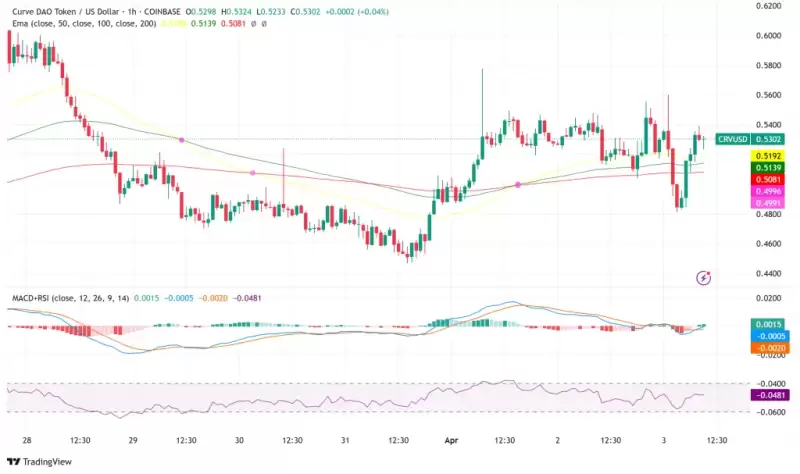 |
|
 |
|
 |
|
 |
|
 |
|
 |
|
 |
|
 |
|
 |
|
 |
|
 |
|
 |
|
 |
|
 |
|
 |
|
Cryptocurrency News Articles
Qubetics: Quantum-Resistant Addressing for Future-Proof Security
Oct 31, 2024 at 06:15 am
In an age where quantum computing could potentially compromise traditional cryptographic systems, Qubetics is introducing quantum-resistant addressing as a safeguard for its blockchain.

Emerging blockchain platforms, such as Quant, Theta, Kaspa, Stacks, and Qubetics, are pushing the boundaries of blockchain technology with innovative solutions. While each platform offers unique capabilities, Qubetics stands out with a particularly forward-looking feature: quantum-resistant addressing. This addition aims to safeguard user identities and transactions against the emerging threat of quantum computing, marking a significant step toward a resilient blockchain infrastructure. Let’s explore the unique propositions of each of these platforms and how Qubetics’ quantum-resistant technology stands out.
Qubetics: Quantum-Resistant Addressing for Future-Proof Security
In an age where quantum computing could potentially compromise traditional cryptographic systems, Qubetics is introducing quantum-resistant addressing as a safeguard for its blockchain. By adopting a post-quantum cryptography (PQC)-based address scheme, Qubetics proactively secures user identities and transactions against the capabilities of future quantum computers. This approach relies on cryptographic algorithms designed to withstand quantum attacks, ensuring that user data and transaction integrity remain intact as technology advances.
Qubetics’ focus on security extends to its QubeQode IDE, which provides a streamlined development environment for creating decentralised applications. The IDE features a range of tools, including drag-and-drop components, a code snippet library, and form-based configuration, all of which simplify blockchain application development. Additionally, the platform leverages AI to assist developers in generating smart contracts, detecting errors, and optimising code, making DApp creation efficient and secure.
Currently, Qubetics is in Presale Phase 6, with $TICS tokens priced at $0.0175692. Having raised over $1.5 million from 1,200 holders and sold 140 million tokens, the platform has generated significant interest. At this price, a $100 investment would yield approximately 5,691 tokens. If Qubetics’ value rises to $15, this investment could reach $85,365, reflecting a substantial ROI of 85,276.6%.
Quant: Bridging Blockchain Networks with Overledger
Quant focuses on interoperability between various blockchains, providing a solution to the fragmentation seen in the blockchain space. Its Overledger network connects different blockchain systems, allowing data and applications to communicate across chains seamlessly. This interoperability solution benefits enterprises and developers, enabling them to build multi-chain applications that leverage blockchain functionalities.
As the blockchain industry becomes more diverse, Quant's role in creating a connected ecosystem becomes especially valuable. Quant enhances blockchain’s utility and scalability by enabling data flow across networks, encouraging broader adoption in sectors like finance and healthcare.
Theta: Decentralizing Video Streaming
Theta Network brings decentralisation to the video streaming industry, tackling high bandwidth costs and content delivery issues faced by traditional streaming platforms. Theta allows users to share their excess bandwidth and resources in exchange for rewards, which helps reduce the costs associated with video streaming. With its dual token model, Theta incentivises content creators and viewers, creating a more inclusive ecosystem for all participants.
By decentralising video delivery, Theta provides a more efficient and cost-effective solution that benefits creators and consumers alike. The platform has garnered partnerships with major content providers, underscoring its potential to revolutionise the streaming industry by offering a more sustainable and user-friendly model.
Kaspa: High-Speed, Scalable Blockchain
Kaspa is a high-speed blockchain protocol that addresses scalability through its GhostDAG protocol, which allows multiple blocks to be processed simultaneously. This unique design enhances transaction throughput and minimises confirmation times, making Kaspa suitable for high-demand applications. Kaspa’s structure enables faster block confirmations without sacrificing security, offering a solution to the blockchain trilemma of security, scalability, and decentralisation.
For developers and users, Kaspa’s speed and scalability make it an attractive choice for applications requiring high-frequency transactions, such as payment systems and trading platforms. Kaspa's technical approach is well-suited to meet the needs of modern blockchain applications that prioritise efficiency and decentralisation.
Stacks: Bringing Smart Contracts to Bitcoin
Stacks introduces smart contracts to Bitcoin, allowing developers to build decentralised applications on the world’s first and most secure blockchain. Through its Clarity language, designed to be secure and predictable, Stacks enables the creation of complex applications while leveraging Bitcoin’s robust security. By building on Bitcoin, Stacks offers a unique approach to smart contracts and decentralised finance, allowing users to interact with Bitcoin-based assets through a secure framework.
Stacks appeals to developers who want the flexibility of smart contracts without compromising security. Its integration with Bitcoin adds a new layer of functionality to the blockchain, enabling applications such as DeFi and NFTs on a secure, decentralised foundation.
The Strategic Value of Quantum-Resistant Technology
Qubetics’ adoption of quantum-resistant addressing is a forward-looking feature that addresses a critical issue in blockchain security. As quantum computing advances, traditional encryption may become vulnerable,
Disclaimer:info@kdj.com
The information provided is not trading advice. kdj.com does not assume any responsibility for any investments made based on the information provided in this article. Cryptocurrencies are highly volatile and it is highly recommended that you invest with caution after thorough research!
If you believe that the content used on this website infringes your copyright, please contact us immediately (info@kdj.com) and we will delete it promptly.
-

- Pi Network Price Crashes Hard as Binance Skips the Token in Its Latest Vote to List Initiative
- Apr 03, 2025 at 03:00 pm
- Pi Network supporters are once again left frustrated as Binance skips the token in its latest Vote to List initiative. This marks the second time the world's largest exchange has ignored Pi, shutting down hopes of an imminent listing.
-

-

-

-

-

-

-

- Bitcoin (BTC) ETF Inflows Have Surged Again as Investors Ignore Trump's Reciprocal Tariffs
- Apr 03, 2025 at 02:45 pm
- Inflows into spot Bitcoin ETFs have surged once again as investors chose to look past the Trump reciprocal tariffs. The net inflows across all US ETFs for Bitcoin stood at $220 million
-

























































